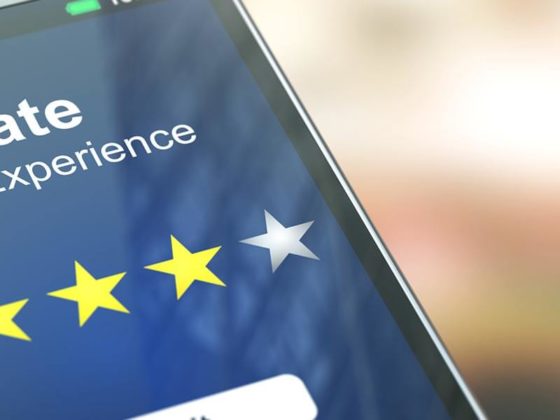In the first week of my old jobs, I searched on Google for nearby coffee shops. The closest one I could find in the search results was three miles away. Every day at 10:00 am, I’d hop in my car and make the roundabout six-mile drive for my hot brew, eating up anywhere from 10 to 20 minutes of my day depending on traffic. I took this trip for coffee every day for a month into my job until a coworker finally told me there was a coffee shop just a block away from our office. What gives? They never popped up online when I Googled local coffee shops.
As I’d come to find out, this elusive store never localized their online presence. No one could find them in online searches for local coffee shops because they hadn’t told the web that they’re a local business. And they’re not the only one.
If you’re thinking about localization to enhance the SEO value of your business’s website, you need to think about it from the point of view of your customers. How easily can they find more information about you? What are other people saying about your business online? People don’t reach for phone books anymore; they search online with their computer and smartphones.
If no one can find you when they search for local businesses, now is the perfect time to add localization to your digital marketing strategy. But how does it happen? Here are important local SEO ranking factors you need to consider.
On-Page Optimization
There is one tried and true, quick and easy method to display your basic contact information online. Place your business name, address, and phone number (NAP) in the header or footer of your website. This makes it visible on every single one of your web pages and posts. No matter where people end up on your website, your contact information will be right there.
NAP is important but websites often have other issues. Check out some of these common on-page SEO problems in our previous article that may need to be corrected. These technical SEO issues are worth knowing about as well even if you may not be code savvy.
Online Business Listings and Maps
Multiple directors and maps exist online that let small businesses owners like you easily populate the web with important contact information. These directories and maps include:
Google My Business is an especially important platform to be established on. Don’t let this one slip. As the biggest search engine around and most people’s go-to source for learning and discovering, claiming your place on Google gives you a major advantage of over other local businesses that have neglected to do so.
Google My Business (GMB) is an entirely legitimate way to localize your business online because of its thorough verification process. When people find your business listing on Google, they will know it is really you.
Every directory and map, whether it’s GMB or another, needs as much information about your company as you can possibly provide. The minimum you should provide is the name, address, and phone number of your business, known as NAP. NAP at least lets a search engine get a handle on who you are and how people can get ahold of you. But those are just the bare essentials, and you should strive to make more data available.
The more details, the better directories and maps can represent you in search results. Some essential points include:
- Name of your business
- Address
- Phone number
- Type of business
- Description of who you are and what you do
- Hours of operation
- Logo
- Pictures
- and Posts
Make sure all of this information is accurate when filling it out on GMB. Any inaccurate details or misspellings will only confuse search engines and harm the quality of your SEO.
Business listing engine, Authority Listing, in particular, makes posting your information on directories and maps a cinch. Not only does it claim your business listing on each platform for you without all the login IDs and passwords, information is typically immediately updated. No need to change each individual page manually saving time and getting your promotional messages in front of consumers quickly.
This also ensures consistency across every account, leaving little room for the sorts of errors you might accidentally make when doing this process manually. Having one platform in which to manage this information makes localizing through Google (or any other directory) easier than ever.
All of this directory information should be present on your website as well, and it should match what is on your GMB page. Include the directory info on the “About Us” or “Contact” page, even another specifically designated webpage where people can learn more about you.
All of this is to ensure that you present your directory (or directories) and maps listings as clearly and transparently as possible. A misspelled address or a wrong phone number does not help anyone. Lack of distinction among your different office locations only makes it harder for people to find you. Creating understandable and thoroughly detailed directories brings more people to your website and through your doors.
Different Location Pages
If you have multiple locations, creating a single location-focused page for each location is still beneficial to your digital presence. It provides a reliable destination point for your website visitors who want to know where you are.
If you want to really spotlight your different locations, however, especially if they each offer unique things, it is worth your time to create a unique webpage for each one of them. Create an optimized page for each of your offices, complete with all of the information mentioned in the last section, including a unique GMB page.
If you have products or services that are unique to a specific location, you will want to include links to the pages of those products and services on the designated location page. This will clear up the confusion that would otherwise be caused as to which of your offices offer what.
Add maps to each location page as well. A map gives people an understanding of how close or far you are from their destination. A map can be easily generated with a code from a service like Google My Maps or Google Maps Generator.
Localized Keywords
If you already have a keyword strategy for your site, you are ahead of most other company websites. But keywords compete on more than just the national level; they compete locally as well. Keywords popular in your own city, state, or region hold big influence over what pops up in people’s search results. Localized keywords to capture web traffic of people who live where you live.
A local keyword is similar to a keyword that might already exist on one of your webpages, but it also includes the name of a city or state along with it—one where your target audience is located. For example, “chiropractor in Phoenix” is a better, more targeted keyword than just “chiropractor” if you are looking for local customers. It is a simple and effective alert to people that you are right in their own backyard, and that you are a well-established company in their society.
Be careful, though. Localized keywords can quickly become spammy if you’re using it in your web content. With the way local SEO has been refined over the years, keywords with a local focus are only part of the strategy, not the only strategy. They should not become substitutes for other vital local SEO techniques.
These keywords are best for using in about pages or in company specific information, and entire blog articles can be generated around them with clever phrasing and subject matter like a localized success story or experience.
Use a keyword tool like Google Keyword Planner to investigate exactly which local keywords are generating the most hype among consumers and which you could use that your competitors have overlooked. There are always better ways of refining local search.
Online Reviews
You might not know it, but your customers are most definitely talking about you, whether in person or online. With how many resources there are on the internet for customers to talk about their experiences, both positive and negative, it is likely that people are even leaving written reviews about your business.
When given a public platform, people will be honest about their interactions with your business. You need as many reviews as possible to showcase publicly.
Business reviews are easy to acquire. Ask a current or former customer to leave a public review that describes why they like you and why they would recommend you to someone else.
The two major platforms that you should be spotlighting reviews on are Google My Business and your Facebook business page. That is where most people will see what others are saying about you. Depending on your industry, through, a network like Yelp or a medical directory is worth spending time on as well.
Positive reviews count the most, of course. Google explicitly puts a high premium on positive reviews, as these translate into better SEO and better online local rankings.
A good rule of thumb is to constructively respond to every written review someone leaves you, as this displays that you care about feedback and how customers experience working with you.
If you want a lot of positive reviews to show off, the onus is on you to run a competent, effective company that gives people what they want. A good relationship with your customers makes them enthusiastic about sharing the details with others. You can also ask you’re your favorite customers to post a review. Generally, if they like you and you like them, they will agree to do it.
If you are having trouble producing or managing business reviews, a third party can do it for you. Third-party companies can map out an entire strategy for producing legitimate customer reviews. How is this done?
A company that specializes in review generation can direct your customers to a landing page where they can share their thoughts about what it was like to do business for you and then shares those reviews on websites. You are routinely updated on positive reviews, negative reviews, and even trending keywords within the reviews.
A few sources that can help with review generation and management are:
The more positive reviews you have to show, the better reputation you have. The better reputation you have, the stronger your SEO becomes.
Structured Data
When your website and webpages show up in a search engine result, you have the chance to show people what you are all about before they ever click a link. You can display essential business info right in the results under webpages that anyone can view. This immediately establishes you as a local company in your customers’ community.
The tool to do this is called structured data. Structured data is a type of code added to websites to help search engines better crawl webpages and better understand what your web content is about. What makes structured data so helpful is that it describes web content and its specific properties to search engines in a way that they couldn’t otherwise comprehend.
So what kind of information does structured data display in search results? It shows basic information like NAP to coincide with webpage titles and meta descriptions, in addition to more elaborate details like:
- Products
- Upcoming events
- Hours of operation
- Ratings
- Pricing
- Videos
- Music
These details displayed are known as Rich Snippets. Rich Snippets have the potential to boost your website traffic and win your business more customers.
Google takes the quality and integrity of Rich Snippets very seriously. Every Rich Snippet you create will undergo Google’s vetting process that takes course over several weeks. If Google determines that the snippets and serve a helpful purpose for the user, they will become permanent fixtures in search results.
Search engines are making localized search results more and more important. Users want convenience, and the places closest to them are the ones they are most likely to spend their money at. If you’re making the mistake of that coffee shop and not telling search engines that you are business central to your own community, you are missing out on a ton of new customers and a lot of revenue. Harness the power of our Local SEO Advantage program to help your company localize its entire online presence; from directories and maps to your website and local pages for amazing results on search engines. Let’s make your voice heard all over your city, state, and region.






